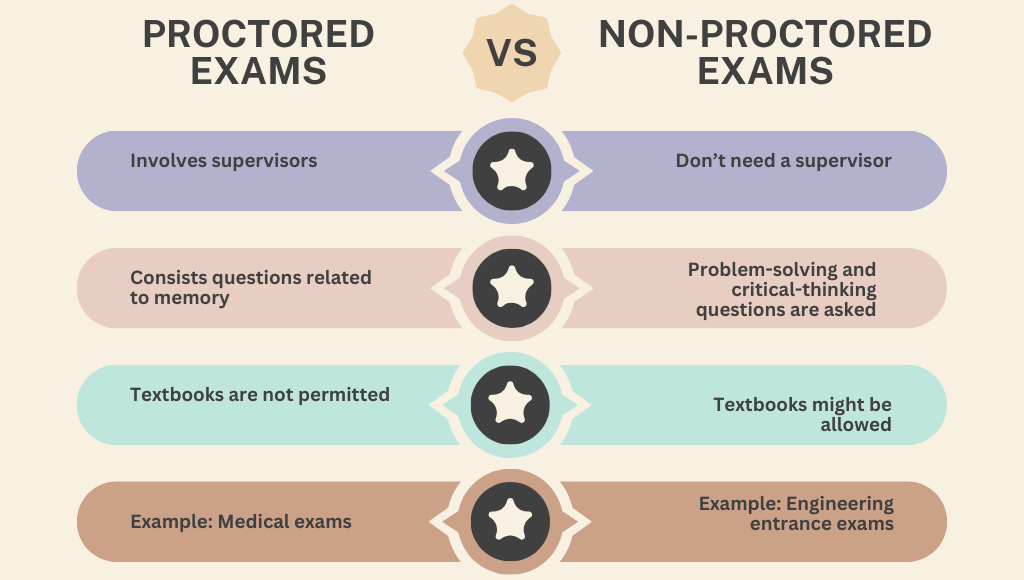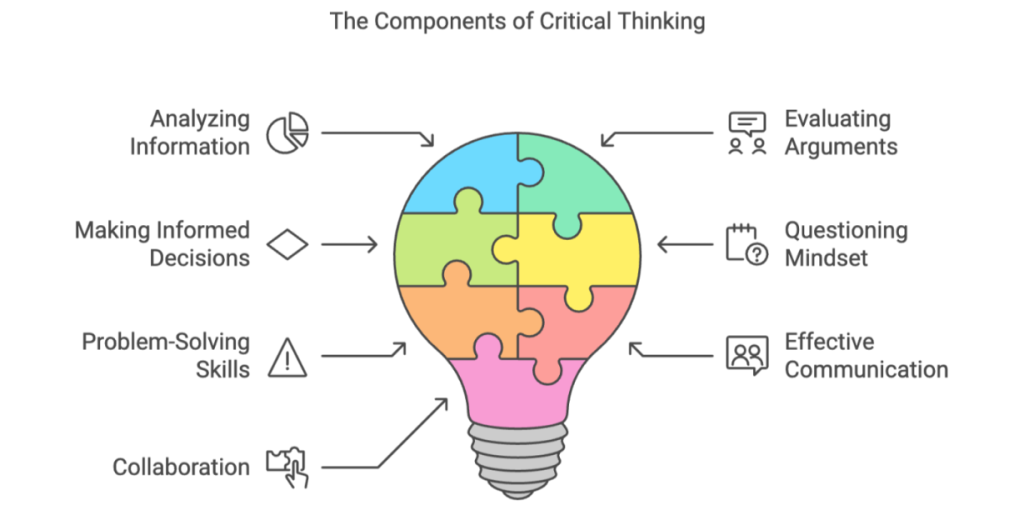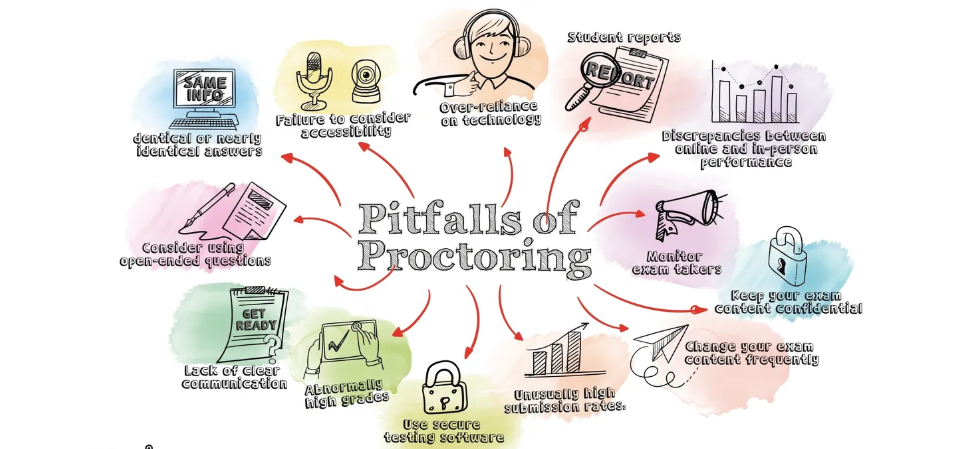
Table of Contents
The path to becoming a registered nurse is paved with challenges, and one of the most significant hurdles is mastering proctored nursing exams. These exams, designed to evaluate your knowledge and critical thinking skills, are a crucial component of your nursing education and licensure. Unlike regular classroom quizzes, proctored nursing exams are typically administered under strict supervision to ensure academic integrity.
This article provides a detailed roadmap for preparing effectively and performing your best on these high-stakes assessments. It will cover effective study strategies, test-taking techniques, and tips for managing exam-related stress.
Understanding the Nature of Proctored Nursing Exams
Before diving into preparation strategies, it’s essential to grasp the specifics of what makes proctored nursing exams different. These tests are often:
- Comprehensive: They cover a wide range of nursing topics, from basic sciences to specialized patient care areas.
- High-Stakes: The scores on proctored tests for nursing students can significantly impact your academic standing, program progression, and eventual licensure.
- Time-Limited: You’ll have a specific amount of time to complete the exam, requiring both speed and accuracy.
- Securely Administered: A proctor will monitor the exam environment to prevent cheating and maintain the integrity of the assessment.
- Standardized: Many proctored nursing exams use standardized question formats, like multiple choice, which require specific test-taking strategies.

Strategic Preparation: Laying the Foundation for Success
Effective preparation for proctored nursing exams goes far beyond rote memorization. It requires a deep understanding of the material and the development of critical thinking skills. Here’s a breakdown of essential strategies:
- Start Early and Plan: Don’t wait until the last minute to begin studying. Create a detailed study plan that allocates sufficient time to each topic. Break down the syllabus into smaller, manageable sections. Consistency is key; short study sessions spread over time are more effective than marathon cram sessions.
- Understand the Content: Don’t just memorize facts. Focus on understanding the underlying concepts and how they relate to each other. This deeper understanding will help you apply your knowledge to different scenarios presented in the proctored exams for nurses.
- Utilize Various Study Resources: Don’t rely solely on textbooks. Explore a variety of resources, including:
- Lecture Notes: Review and clarify any notes you took during class.
- Practice Questions: Use practice exams and questions banks to assess your understanding and familiarize yourself with the test format.
- Study Guides: Utilize study guides specifically designed for nursing exams.
- Online Resources: Many websites offer supplemental study materials and practice questions relevant to proctored nursing tests.
- NCLEX Resources: Even if you’re not taking the NCLEX now, NCLEX-style questions are often included in proctored exams for nursing.
- Review Books: Consider investing in review books that provide targeted content and practice questions.
- Focus on Areas of Weakness: Identify the topics you find most challenging and spend extra time on them. Don’t avoid the areas you struggle with; they’re the ones where you need the most improvement.
- Collaborate with Peers: Form a study group with your classmates. Discussing concepts, answering each other’s questions, and explaining the material can significantly enhance your understanding. Remember that explaining a concept to someone else solidifies your own understanding.
- Practice Critical Thinking: Proctored nursing exams are designed to assess your ability to apply knowledge to practical situations. Practice analyzing case studies, identifying patient needs, and prioritizing nursing interventions. Don’t just think about what the correct answer is; think about why it is the correct answer and why other options may be incorrect.

- Simulate Exam Conditions: Take practice tests under time constraints. This will help you develop time management skills and reduce anxiety on the actual exam day. Recreate the exam setting as closely as possible.
- Review Regularly: Schedule regular review sessions to consolidate your learning. Repeated exposure to the material reinforces your understanding and improves retention.
Mastering Test-Taking Strategies: Techniques for Success
Preparation is just one part of the equation. Effective test-taking strategies are equally crucial for achieving a good score on proctored nursing exams.
- Read Each Question Carefully: Don’t skim. Take your time to read and understand what the question is asking. Pay attention to key words and phrases. Misunderstanding the question is a common mistake that can lead to incorrect answers.
- Identify the Core Issue: Determine what concept is being tested. Understanding the underlying principle is key to selecting the right answer. If you don’t understand what’s being asked, re-read the question and break it down into its component parts.
- Eliminate Incorrect Options: Use the process of elimination to narrow down the choices. Even if you don’t know the correct answer immediately, you can often eliminate options that are clearly incorrect.
- Look for Key Words: Key words in questions can often provide clues to the correct answer. Examples include: “most important,” “first,” “priority,” or “contraindicated.”
- Prioritize Patient Needs: When dealing with patient care scenarios, always prioritize the most urgent and life-threatening issues first. If multiple options seem plausible, pick the one that most directly addresses the immediate threat to the patient’s wellbeing.
- Time Management: Keep track of time during the exam. If you’re struggling with a particular question, don’t get stuck on it. Move on and come back to it later if time permits.
- Trust Your Instincts: If you’ve prepared well, your initial intuition is often correct. Don’t overthink each question.
- Don’t Change Answers Unless You’re Sure: In most cases, your first answer is more likely to be correct than a changed one. Don’t change answers unless you are absolutely certain you made a mistake.
- Answer Every Question: Even if you’re unsure, it’s better to make an educated guess than to leave a question blank.
Managing Exam-Related Stress: Staying Calm Under Pressure
Proctored nursing exams can be stressful, but managing that stress is crucial for performing your best. Here are some stress-reducing techniques:
- Get Enough Sleep: Make sure you get a good night’s sleep before the exam. Being well-rested will help you think clearly and focus during the test.
- Eat a Healthy Meal: Don’t skip meals before the exam. Eating a nutritious meal will provide you with the energy you need to perform your best.
- Practice Relaxation Techniques: Techniques like deep breathing, meditation, or visualization can help calm your nerves before and during the exam.
- Arrive Early: Arrive at the exam venue early to avoid feeling rushed or stressed. This gives you time to settle in and prepare mentally.
- Stay Positive: Believe in your preparation and your ability to succeed. Maintaining a positive attitude can boost your confidence and reduce anxiety. Remember you have worked hard to be where you are today.
- Take Breaks: If you’re feeling overwhelmed during the exam, take a few deep breaths or a quick mental break to clear your head.
- Focus on What You Can Control: You can’t control the difficulty of the test, but you can control how you prepare and approach the exam. Focus on what you can control and don’t get caught up on things you can’t.
The Importance of Integrity in Proctored Exams
Proctored nursing exams are designed to assess your knowledge and abilities fairly and accurately. It is important to adhere to the rules set by the exam proctor to ensure integrity and fairness in the process. Cheating will not only put you at risk of disciplinary action but also jeopardizes the integrity of the nursing profession as a whole. The goal of these exams is to ensure you are capable of safe and effective patient care.
Avoiding Common Mistakes in Proctored Nursing Exams
The path to becoming a registered nurse is rigorous, filled with demanding coursework and high-stakes assessments. Among these, proctored nursing exams stand out as crucial gatekeepers, evaluating a student’s comprehension and application of nursing principles. These exams, often administered under strict observation, can be intimidating. However, many common mistakes can be avoided with proper preparation and test-taking strategies. This section delves into these pitfalls and offers actionable advice on how to improve performance on your proctored nursing exams.
1. Inadequate Content Review
- The Problem: Many students rely on last-minute cramming, focusing on memorizing facts rather than understanding the underlying concepts. This superficial approach is a recipe for disaster in proctored exams for nurses. The material in nursing is cumulative, and building a solid foundation is essential.
- The Solution:
- Start Early: Don’t wait until the last minute. Begin reviewing material early and consistently.
- Deep Understanding: Focus on understanding why things work the way they do, not just memorizing what happens.
- Active Recall: Test yourself regularly using flashcards, practice questions, or by explaining concepts aloud.
2. Poor Test-Taking Strategies
- The Problem: Even with good content knowledge, poor test-taking strategies can lead to missed points. Rushing through questions, not reading them carefully, or second-guessing your answers can significantly impact performance in proctored tests for nursing students.
- The Solution:
- Read Carefully: Pay close attention to the wording of each question. Look for keywords, and understand what the question is truly asking.
- Manage Time: Keep an eye on the clock and allocate time appropriately for each section. Don’t get stuck on a single difficult question; move on and come back to it if time allows.
- Eliminate Answers: Use the process of elimination to narrow down your choices. Even if you’re not sure of the correct answer, you can often eliminate clearly incorrect options.
- Trust Your Instincts: Avoid overthinking and constantly changing answers. Your first choice is often the correct one.
3. Ignoring NCLEX-Style Questions
- The Problem: Many nursing exams, including proctored nursing tests, employ the NCLEX (National Council Licensure Examination) style of questioning. These are often critical thinking-based scenarios, requiring students to apply their knowledge to real-world situations. Ignoring this style during your preparation will hinder your success on proctored exams for nursing.
- The Solution:
- Practice NCLEX-Style Questions: Utilize practice questions and online resources to become familiar with the format and style of these questions.
- Understand Rationales: When reviewing practice questions, focus not just on the answer but also on the rationale behind the correct answer. This helps develop critical-thinking skills.
- Clinical Application: Think about how the concepts you are learning apply to patient care scenarios.
4. Failing to Manage Anxiety
- The Problem: Test anxiety can significantly impact performance, leading to memory blanks, rushed responses, and careless errors. The high-stakes nature of proctored nursing exams can intensify these feelings.
- The Solution:
- Practice Under Pressure: Simulate test conditions during your practice sessions.
- Relaxation Techniques: Practice deep breathing, mindfulness, or other relaxation techniques to manage stress.
- Adequate Rest: Ensure you get enough sleep the night before the exam. A well-rested mind will be clearer and more focused.
5. Neglecting Self-Care
- The Problem: Nursing students often neglect their well-being, leading to burnout, decreased focus, and poor performance during their proctored exams.
- The Solution:
- Prioritize Sleep, Nutrition and Exercise: A balanced routine will keep your mind and body performing at their best.
- Take Breaks: Step away from studying when you need to. A refreshed mind is more effective than one that is constantly taxed.
- Seek Support: Talk to friends, family, or a counselor if you are struggling with stress or anxiety.

Success in proctored nursing exams is not just about intelligence, but about effective preparation, strategic test-taking, and managing stress. By recognizing and avoiding these common mistakes, nursing students can increase their chances of achieving their academic goals and ultimately becoming competent and compassionate healthcare professionals. By adopting these strategies you can approach your proctored exams for nurses with confidence and achieve the success you deserve.
Frequently Asked Questions about Proctored Nursing Exams
Many institutions today utilize proctored nursing exams to ensure the integrity of assessments and the readiness of aspiring nurses. Unlike typical quizzes or homework, they involve strict supervision designed to prevent cheating and maintain a fair testing environment. For some students, the concept can be a source of anxiety. Nonetheless, the following are the most common questions surrounding proctored nursing exams to help you navigate this important aspect of your nursing journey.
What exactly are proctored nursing exams?
Proctored nursing exams are assessments taken under the watchful eye of a proctor, either in a physical location like a testing center or remotely through online platforms. The primary purpose of proctoring is to verify the identity of the test-taker and prevent any form of academic dishonesty. This ensures that the grades earned accurately reflect the student’s knowledge and skills. The setting, whether in-person or online, typically follows specific guidelines and procedures to maintain the integrity of the exam.
Why are they necessary in nursing programs?
The demanding nature of nursing requires professionals who are both knowledgeable and trustworthy. Proctored nursing exams are a crucial component in ensuring this. They not only test a student’s theoretical understanding of complex medical concepts but also their ability to apply that knowledge responsibly. Because nurses make critical decisions that impact patients’ lives, the profession demands a high standard of academic honesty, making proctored settings essential for measuring a student’s capabilities. Ultimately, these exams protect patients by making sure only the most qualified individuals enter the field.
What can I expect during a proctored nursing exam?
The specific procedures will vary based on whether it is an in-person or online exam, but some common practices exist. For in-person exams, you can expect to be asked to present identification. Your possessions, such as phones, bags, and notes, will need to be placed away from your workspace. You will likely be under surveillance, with proctors circulating the room.
For online exams, you’ll likely need a webcam and microphone, with screen sharing functionality activated. You may be asked to show your surrounding environment to confirm you’re alone, and during the test, your activity may be recorded to ensure compliance with guidelines. In both scenarios, you must adhere to strict rules about communication, prohibited items, and break policies. Any deviation may result in invalidation of the exam.
How should I prepare differently for a proctored nursing exam?
While the content you need to study remains the same as for any other assessment, the preparation for a proctored nursing exam requires a slightly different approach. Familiarize yourself with the specific format of the exam, the technology used for online proctoring, and all stated rules. Make sure you have all the necessary materials and equipment (if applicable), and conduct practice runs to get comfortable with the testing platform. Moreover, cultivate a strong understanding of ethical behavior and academic integrity, which are core values of the nursing profession.
What happens if I face technical issues during an online proctored exam?
It’s wise to address potential tech issues head on. Often, institutions will have dedicated technical support available during the exam, so familiarize yourself with those contacts. It’s also a good practice to test your setup before the day of the exam. Having backup solutions for possible connection or hardware failures can also reduce anxiety when writing proctored nursing exams.
Proctored nursing exams are a key part of the academic process in nursing. By understanding what they entail and preparing accordingly, you can reduce your stress and perform to your best ability. Your focus should be on thorough study, understanding the material, and behaving with honesty and integrity throughout the entire testing process.
Approaching Proctored Nursing Exams with Confidence
Mastering proctored nursing exams is achievable with strategic preparation, effective test-taking strategies, and stress management techniques. The tips outlined in this guide can help you to approach these high-stakes assessments with confidence and ultimately succeed in your journey toward becoming a registered nurse. However, you can also hire professional help with proctored nursing exams from Nursing Papers. We have highly skilled and experienced academic writers to handle all your proctored exams successfully. Besides proctored exams, we also help students with writing essays, research papers and dissertations.







